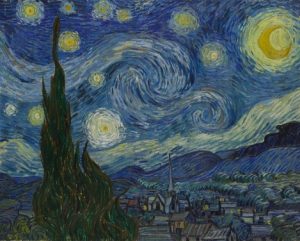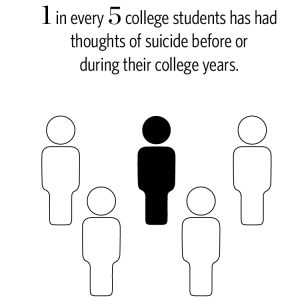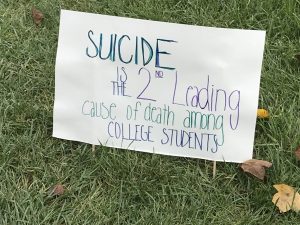 A Café’s Night Life
A Café’s Night Life
Presents:
Dr. Halls Poetry Readings
About Us:

Come join us as we listen to local poets as they paint Van Gogh’s works through the spoken word. Share your ability to demonstrate the emotions one feels when seeing these paintings. Each poem will have a different emotion, tone, feeling, and theme, based upon the painting they are referring. This should be a fun way to bring art into a new light of life. Remember art can be seen, felt and heard in many ways we just need to stop and learn to appreciate them.
Works Cited
“Vincent Van Gogh Quotes.” BrainyQuote, Xplore, www.brainyquote.com/quotes/vincent_van_gogh_386375.

Autumn the season brings falling leaves, shorter days and long frigid nights.
Umbrellas open prompted by rainy dreary times.
Transitions of spiritual movements and thankfulness traditionally given on these days
Migrations of many birds and humans alike, to faraway places, craving the long lost warmth
Unique traditions, a lot in family kitchens creating food and loving memories
Nurturing families coming together as one
Leaves are falling, creating showers of beautiful orange and yellow hues
Apple cider and pies with cinnamon can be scented through the crisp air
Nature is so beautiful in November, showing the subtlety of the changes that we feel inside
Decorations plentiful, scarecrows are out, and cornucopia is being made
Scarecrows are out frightening birds and playing which children
Chestnuts are roasting, corn mazes are beginning, and autumn fun is in the air
Autumnal equinox is brewing, Mabon is here!!
Pumpkin pies being baked with as much love as we can take,
grandma’s laughter is flowing in with the kitchen chatter.
Enjoy this time, because it won’t last. remember autumn goes by very fast.

“There are five flowers visible.
Why are the flowers in different stages?
Can is be life changes?
One flower has not bloomed.
May this be the start of childhood?
Innocence of what may come.
Now there is bright pedals.
Blind of the darkness in this world.
Learning from those before it.
Feeling the weight of aging,
And now the pedals are slowly diminishing.
Not yet to be retired.
The ovule has now fallen.
The water has been digested by others.
Is it time to go?
The flower has completely withered.
The sunflower has lived a full life.
Goodbye to those around me.”

Tonight, we are doing a special appreciation for the artist Vincent Van Gough.

An open field
As far as the eyes can see.
Grassy greens
And clouds of fluff.
Chirping birds,
Floating butterflies,
What more calming place can be asked for?
What else can be seen?
The wind whispering,
Branches conversating,
If you listen hard
You can hear what they are saying.
The sky is clear
The sun is near
With the day still strong
This peach tree is dear.
Petals are swaying
Leaves are dancing
The roots are entwined
And the grass is twisting.
The Pink Peachtree is the center
She is the beauty
She is being outlined
She is the song of this nature

Stars are shinning, chitter chatter of soft, spoken words,
Generating a feeling of togetherness while still being alone.
A barmaid pacing isles
Of white tables aligned
Bearing food and drinks of all kinds.
Yellow light is seen creating happy atmospheres
Creating life within colors
Making this a world of its own.
The outside world can seem so
Dark and dreary making you feel weary.
Cold and unloving in a late-night light.
People laughing, plates crashing
I wonder if they know,
That he draws them in these shadows?
A cold breeze blows
Pine needles fall, yet,
No one bats an eye.
It must be nice
To sit and eat under such a light
Of a Terrace at Night.

“…and then, I have nature, art, and poetry, and if that is not enough, what is enough?” (brainy quote)

In screams of pain
“No,”
This cannot be it.
This will not be the end.
There must be more than just this.
Rage,
The fiery anger building.
“NO!”
The raging denial oozing through every pore.
Choking on the air that is escaping
Gasping,
The tears swelling
Eyes becoming bloodied in shade.
“Anything…”
“Please, I will give anything…”
The sobbing continues.
Hands reaching out.
The feeling of ice.
“Please don’t…”
Sniffling can be heard down the halls.
The breathing seizes.
The air becomes still.
A man sits there,
Hands covering his face.
She is gone.
She has made it to Eternity’s Gate.
“Poetry surrounds us everywhere, but putting it on paper is, alas, not as easy as looking at it.” Vincent Van Gogh

Lying in my bed with no sounds but the concepts in my head
Nestling deeper, I crave for sleep to come to take me
In the distance, I hear the church bells chime “one, two, three…”
I peep at the white steeple and count along until it hits eleven.
Beyond the church I see the clouds swirling nonchalantly amongst themselves,
Creating an illusion of tides crashing amongst the mountainside that extends quite beyond reach.
From behind them, I see eleven stars that are glowing so bright.
Almost as if in competition with the Cheshire moon.
“You won’t win, for she shines the brightest even in the darkest nights.”
The Cypress tree sways in a sign of agreement with me
Down below in the cookie cutter houses that sit neatly in rows
I see a flicker of light shining from a single dwelling,
‘It’s like a beacon of hope fighting to shine through the darkness.’
And then it goes out almost as if to prove my point.
I hear footsteps nearing my bed and strain against the restraints on my wrists attempting to glimpse the town one last time.
“Here’s another dose of your medication dear”
A nurse in white hands me a cup,
Finally, sleep is going to take me on this starry night.






